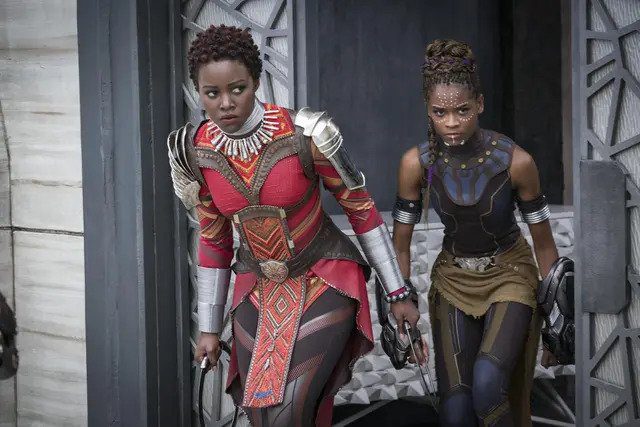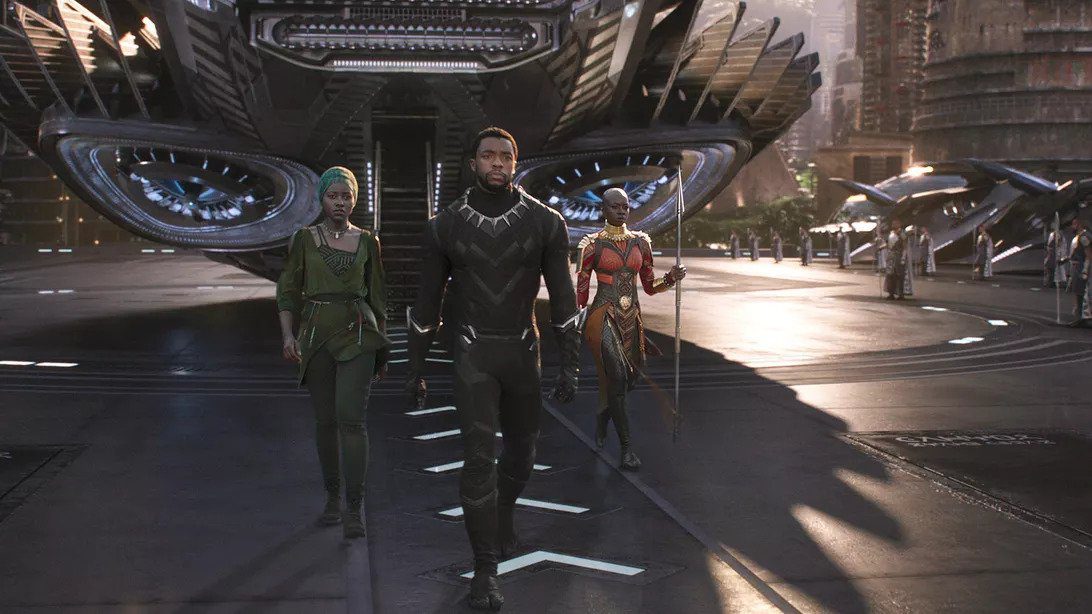Generation Hispanic TV - Live
Afrofuturism: A brief history
But what exactly is Afrofuturism?
Afrofuturism is a term that, despite being a key phrase from one of 2018s most popular films, still hasn’t quite entered the public consciousness. So, let’s dig into what it means by exploring some of its most famous examples.
Afrofuturism is a cultural aesthetic found in art, music and literature. The film critic Clarisse Loughrey offered a useful definition when she called it “an ability to celebrate African heritage without the burden of colonialism, but also to be able to imagine a future where society doesn’t seek to limit them”.
And while the term, which was first coined by journalist and lecturer Mark Dery in 1993, is only now gaining recognition, the concept is not new. There’s evidence Afrofuturism began much earlier than the 90s. And, it even existed in Octavia Butler’s science fiction stories during the 1970s as the famous author regularly placed characters of African descent at the heart of multi-ethnic stories.
Afrofuturism in Sci-fi and Fantasy
Historically, the sci-fi/fantasy genre is an area in which Black people have experienced under-representation. For the first twenty years, even Star Wars only had one major character who was Black. And, whilst Lando Calrissian is great, the lack of plurality is not doing anyone any favours. Similarly, many of the classics of the genre – 2001: A Space Odyssey and Bladerunner – feature a largely white cast.
In 1966, Star Trek blazed a trail in terms of representation. Yet, it would still be another 27 years before the show passed the DuVernay test (think the Bechdel test but for race).
As Ira Glass from This American Life put it, “While there have been Black characters in sci-fi for a while now, they’re almost never the protagonists. They’re never the ones driving the action. And for so long, in so much science fiction, there were no Black people at all”. Therefore, it’s likely one catalyst for the Afrofuturism movement was the need for Black people to see themselves in futuristic settings.
 Afrofuturism in Music
Afrofuturism in Music
Over the decades, musicians have embraced Afrofuturism as well, with George Clinton’s music as a prime example. Parliament Funkadelic, Clinton’s music collective, was influenced as much by Star Trek as by Jimi Hendrix when they released Mothership Connection. The songs focused on a future where Clinton’s ‘afronauts’ explored strange new worlds with their own particular brand of funk.
Moving into the 80s, Afrika Bambataa & The Soul Sonic Force injected Afrofuturism into hip-hop, blending tribal imagery with synth sounds and a Bronx background into their music videos. Great examples of this include the videos for Planet Rock and Renegades of Funk.
Outkast have flirted with Afrofuturism in their videos, but someone who embraces it wholeheartedly is Janelle Monae. Her concept album, The Archandroid, uses the sci-fi trope of the android as a metaphor for all oppressed peoples. As a result of Monae’s take on Afrofuturism, the project received much critical acclaim.
Afrofuturism in TV and Film
But perhaps, unsurprisingly, it’s film and TV where afro-futurism currently has the biggest impact. Ava DuVernay’s A Wrinkle In Time is a great offering, but Ryan Coogler’s Black Panther is by far the standout.
Black Panther is a perfect example of Afrofuturism. Right from its creation by Stan Lee & Jack Kirby in 1966, Black Panther’s fictional country of Wakanda has been a wonderful portrayal of Afrofuturism. A sub-Saharan African country shrouded in mystery, Wakanda was never colonised due to its hostile topography. It’s an isolationist country, rich in a resource called ‘vibranium’ (the most famous example of it being Captain America’s shield). In the comics and the MCU, it is the most technologically advanced country on the planet.
Black Panther is, undoubtedly, a landmark text when it comes to afro-futurism. But sadly, the untimely death of Chadwick Boseman in August 2020 and Marvel’s announcement that they will (rightly) not recast the role means we’ll never see what Coogler had planned for the character.
However, the title for the 2022 follow-up, Black Panther: Wakanda Forever, hints at a wider storytelling lens for the sequel and hopefully a more expansive view of Afrofuturism.
Sticking with Marvel, the What If series on Disney+ took the Afrofuturism football and ran with it. In their episode, What If T’Challa was a StarLord?, we see the young Wakandan prince be kidnapped by the space-faring Ravagers.
Then, instead of watching a man-child Starlord fumble his way through every interaction, T’Challa’s StarLord treats everyone with a unique gentleness and warmth. Not only does this one episode put a person of colour in space, but it also makes him eminently capable and almost universally beloved.
For those who like their Afrofuturism a little less idealistic, Lovecraft Country is not afraid to tackle historic racism from a very 1950s view of the future. The sci-fi fantasy writer HP Lovecraft is credited with creating the ‘cosmic horror’ subgenre. But, his personal letters reveal a particularly repugnant strand of racism. In Lovecraft Country, the show deals with a range of sci-fi tropes, as well as racial horror, showing Jim Crow era cops to be just as, if not more terrifying, than gnashing monsters from outer space.
Afrofuturism as a cultural movement is appealing because not only does it depicts a future where Black people can shake off the history of colonialism, but it also allows for greater storyline variation.
Black stories (or at least the ones that make it into the mainstream) have, over the years, been somewhat limited in scope. But as Roy Wood Jr from the Daily Show put it, “It’s nice to have a Black movie that’s not about slavery, singing or slanging dope, it’s just a dope ass movie”.



